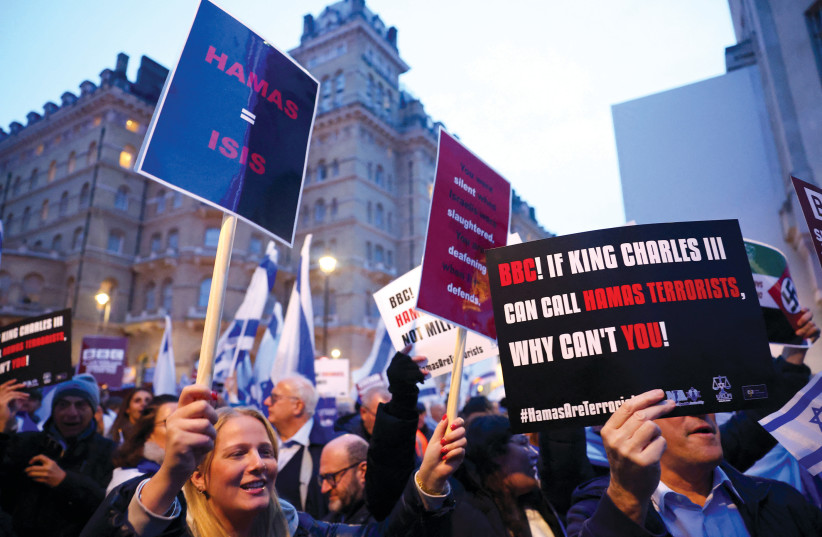The Telegraph has reported on journalist Feras Kilani of BBC Arabic, who has come under scrutiny for producing two versions of an interview with senior Hamas leader Moussa Abu Marzouk. These versions, published in English and Arabic, present significantly different accounts of the October 7th massacre, in which 1,400 Israelis lost their lives at the hands of Hamas terrorists. The stark contrast between the English and Arabic versions of the interview has raised questions about journalistic integrity and impartiality.
According to The Telegraph, in the English version of the interview, Kilani meticulously laid out evidence gathered by the BBC and other media outlets, demonstrating that Hamas had targeted and killed civilians during the October 7th attacks. The report mentioned video footage from Hamas body cameras and first-hand testimonies from international news networks, which indicated that Hamas militants had shot unarmed adults and children. Kilani challenged Abu Marzouk on these findings but did not receive a direct response.
The Telegraph's report highlights the significant differences between the English and Arabic versions of Kilani's interview. The Arabic version of the interview barely touched upon the evidence of civilian targeting by Hamas and portrays Abu Marzouk as insisting that his group did not kill civilians in Israel, emphasizing that only conscripts were targeted.
Furthermore, The Telegraph pointed out that while the English version reported Israel's claim that "more than 1,400 people were killed by Hamas in the 7 October attacks, most of them civilians," it failed to mention the "wealth of evidence" independently collected supporting this claim. The Arabic version, on the other hand, mentioned this evidence but presented it in a more neutral tone.
The differences between the headlines of the two versions are equally striking, as The Telegraph reports. The English version's headline reads, "Hamas leader refuses to acknowledge the killing of civilians in Israel," while the Arabic version's headline translates to "Musa Abu Marzouk to BBC: Hamas did not kill civilians in Israel."

Report adds to existing concerns about bias at BBC
The Telegraph's report also highlighted the concerns raised by both Jewish and media campaign groups regarding the implications for the BBC's reputation for accuracy and impartiality. The Campaign Against Antisemitism spokesperson called the allegation that the BBC provides different accounts to English and Arabic speakers "extremely serious" and urged an immediate investigation.
Camera Arabic, the Committee for Accuracy in Middle East Reporting and Analysis, echoed these concerns, asserting that the BBC's Arabic-speaking audience deserves a news product that includes hard truths, crucial context, and impartial terminology, similar to what is offered in English.
Feras Kilani, who has a long career in journalism, including working with Syrian state TV and Al-Bayan in the United Arab Emirates before joining BBC World Service in 2009, has not responded to the controversy, as reported by The Telegraph.
The BBC responded to this report, in which they defended their approach, stating that it operates in 43 languages, and its reports are not mere translations of each other. “The articles you highlight, published three weeks ago, have both been through our robust editorial processes.”
